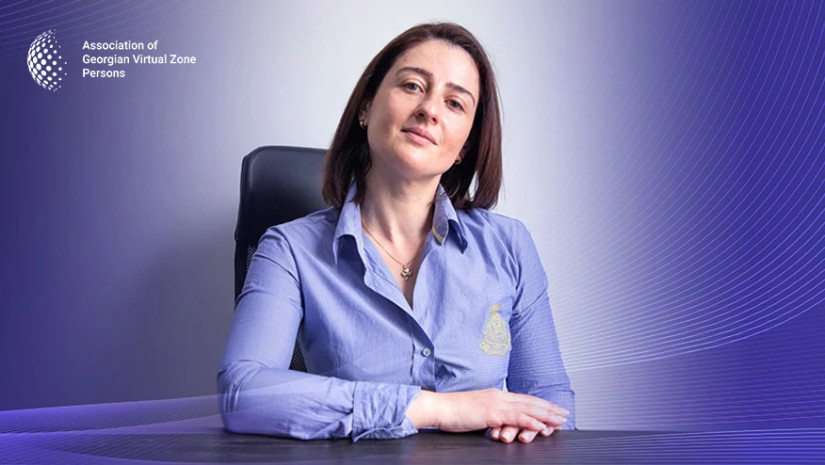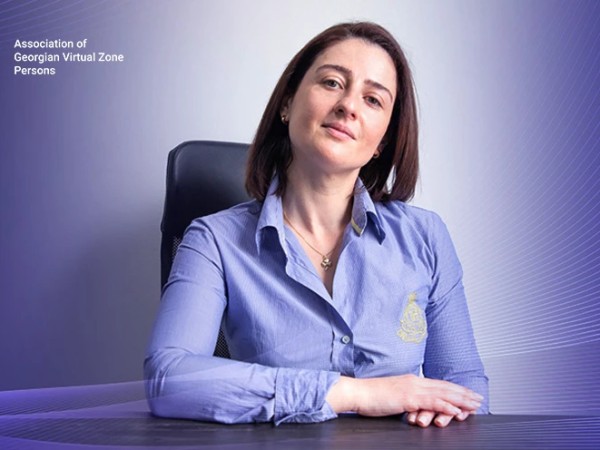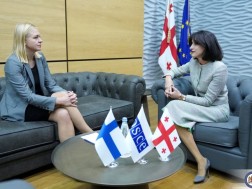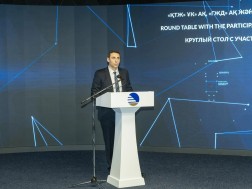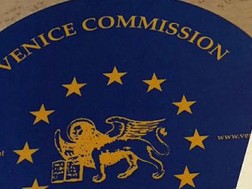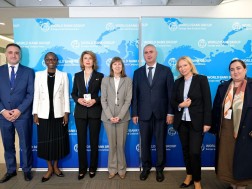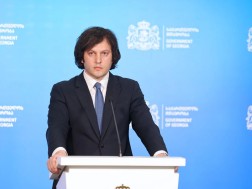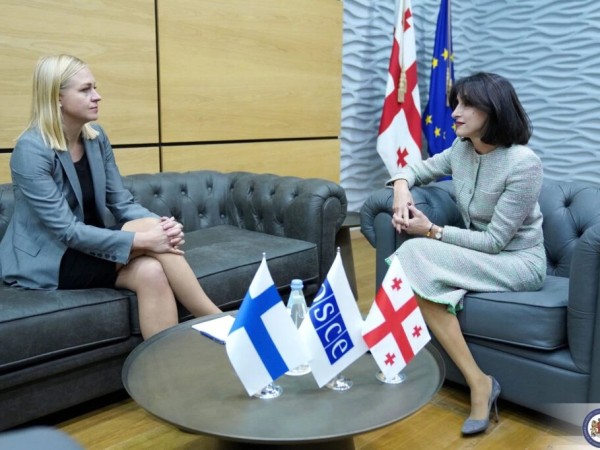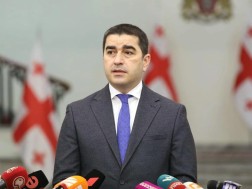Tbilisi (GBC) - International IT companies attracted by the "Tax Oasis," who are dissatisfied with the fines imposed in recent years due to ambiguous legislation and are considering leaving the market, are waiting to see the outcome of the legislative initiative launched by the Association of Georgian Virtual Zone Persons (VZP). It is only a matter of time before they leave the Georgian market due to legal deficiencies.
According to Shorena Kopaleishvili, chairman of the Association of Georgian Virtual Zone Persons, only a clear and accurate record of the law will ensure the stable and smooth operation of companies with this status in the future in the Georgian market.
Several companies with VZP status are considering starting a legal dispute to compensate for the moral and material damage caused, which is a real possibility despite the Association's efforts to finally end these disputes through legislative changes.
The Association of Georgian Virtual Zone Persons, in collaboration with its partners, has developed a legislative initiative (draft law) that considers all the problematic issues that have emerged in recent years. And now it is the government's turn—what problems Virtual Zone companies attracted by tax benefits in Georgia are facing and how close and real the opportunities to solve these problems are, Shorena Kopaleishvili, the chairman of the Association, talks to us in an interview:
– In recent years, information has spread that companies with the status of Virtual Zone Persons were encountering significant difficulties with revenue service representatives. Your comments in the media indicate that you are consulting with the government, and specific positive signals are coming from representatives of the Revenue Service of the Ministry of Finance and the relevant Parliamentary committee. What are your results so far?
Shorena Kopaleishvili: From 2021 on, companies with the status of a Virtual Zone faced considerable tax pressure. At the initial stage of the emergence of the problem, this topic was actualized and discussed both in the media and in other professional circles, which called into question the legality of retrospectively charging taxes and fines to companies. The position of the Association on the reasons for this and the fairness of the process is well-known and has not changed.
Furthermore, despite the two difficult years and heated disagreements, communication with state agencies is still relatively active today.
In recent months, we held several meetings with representatives of the Ministry of Finance and the Revenue Service, where we discussed the problems, challenges, and opportunities for solving difficulties for companies with the status of Virtual Zone Persons (VZP). As a result of this direct dialogue, many companies' situations have improved significantly; the majority of them have removed or reduced the imposed taxes, fines, and penalties. I am confident that the dialogue between the state and business will continue in the future.
Based on the fact that the current situation is primarily caused by an unclear record of the relevant regulatory norms, which still allows for interpretation, we also shared our views with Mr. David Songhulashvili, Chairperson of the committee of sector economy and economic policy at Parliament of Georgia, as one of the active and leading committee chairman, who has a good understanding of the role of small and medium-sized businesses in the development of the country’s economy.
– Do the senior officials with whom you communicated about the problems of IT companies with VZP status acknowledge that the legislation is vague and leaves room for interpretation?
Shorena Kopaleishvili: This, I believe, does not require acknowledgment; it is obvious that the legislation is flawed. This was repeatedly noted by representatives of relevant agencies during unofficial communication.
In addition, the business ombudsman of Georgia talks about the improvement of the relevant legislation in his assessments: "These obligations should be clearly and fully spelled out by the Tax Code of Georgia, and the relevant norms should not allow for a different interpretation, especially when it comes to tax benefits."
In what year was the current legislation adopted, and what changes have been made since its adoption until today?
Shorena Kopaleishvili: "The Law of Georgia on Information Technology Zones" was adopted in 2010, but entered into force on January 1, 2011. According to the explanatory card, the reason for the creation of the law was the difficulty in developing information technologies in Georgia, and the goal of the law should be to attract investments and create an attractive environment for those who will carry out economic activities in the field of information technologies.
The mentioned law was only slightly amended once (2012). There have been no other changes, corrections, or additions to this law since then.
In my opinion, given the rate of development of information technology and the dynamics of technological achievements, the adoption of the aforementioned law was timely and correct, despite the fact that it was done hastily, without an in-depth study and analysis of international practice and legislation. There were no clarifications for business, either at the time of the law's adoption or in subsequent years, to which the state has a direct obligation as a dominant in public relations. This was the reason for the problems that appeared in 2021.
– Concerning the provisions, information has spread that, if I am not mistaken, three contradictory provisions have been published in recent years. What countermeasures did the Revenue Service of the Ministry of Finance take to eliminate this shortcoming, and what has changed as a result of this for the previously fined companies?
Shorena Kopaleishvili: In the last year and a half, three methodological references of the head of the Revenue Service with completely different contents were issued, namely N42644 of December 31, 2021; N7547 of March 25, 2022; and N33544 of December 29, 2022.
The Association of Georgian Virtual Zone Persons consistently submitted substantiated questions and comments to the Revenue Service regarding the first and second methodological references, shared business experience, and submitted relevant proposals, bringing clarity to the regulation of certain issues; a number of issues were taken into account in the third methodological reference, which became the basis for the removal or reduction of taxes, fines, and penalties imposed.
However, the last (third) methodological reference of the Revenue Service still does not explain and regulate many issues of the taxation of private enterprises. Accordingly, the Association's position regarding the legislative clarification remains unchanged. We believe that only a clear and accurate record of the law will ensure the stable and smooth operation of companies in the future.
– What does this change in the approach of the Revenue Service indicate, and how correct are these provisions or methodological references to be used as a basis for decisions?
Shorena Kopaleishvili: As we have seen, each new methodological reference canceled the previous one and established different approaches to taxation issues, which clearly confirmed that the supervisory authority changed its position more than once in this short period of time regarding the legal bases of taxation of companies with the status of Virtual Zone. This probably indicates that the agency itself was not fully formed in its approach. In addition to the taxes and sanctions, this situation caused additional financial and moral damage to the companies. By the way, several of our member companies are considering starting a legal dispute to compensate for the moral and material damage caused, which certainly has a perspective, although the Association is trying to finally end these disputes by adopting legislative changes.
– What is your assessment - to what extent does the Revenue Service share the initiative of your Association and the claims of the companies in the coverage area of your work in relation to the legislation?
Shorena Kopaleishvili: At all the meetings where we and our partners raised the need to clarify and improve the legal framework, we received no objection from any official, which is both welcome and correct. We may discuss the wording of this or that norm and other details, but I don't understand why there should be any objection to providing clear, strict, and fair legislation.
– A draft of amendments to the law was prepared with your direct participation as chairman of the Association. Who else was involved in the project's preparation, and what changes will be made to tax legislation if Parliament accepts and approves this initiative?
Shorena Kopaleishvili: The Association of Georgian Virtual Zone Persons, in collaboration with its partners, has developed a legislative initiative (draft law) that takes into account all of the problematic issues that have been identified in recent years. We have studied similar special regimes around the world, and I must point out that Georgia has a unique chance to compete with many advanced countries with sound regulatory legislation that spares no effort to create an attractive environment for investors working in the IT field.
Mr. David Papiashvili, the managing partner of the international network company "Kreston Georgia," worked on the legislative initiative and is regarded as one of Georgia's best tax experts.
It is also important to highlight the role and support of the European Business Association (EBA) in this process. EBA unites more than 100 Georgian and European companies, and its vision is that business in Georgia should be conducted according to European standards.
Of course, I would like to express my gratitude to each employee and member companies of the Association of Georgian Virtual Zone Persons for their trust and support.
The initiative we developed will regulate a number of important and currently contentious issues related to the activities of VZP companies and their taxation; regulatory norms will become precise and clear, preventing any party from interpreting them. Most importantly, companies will be able to operate in a stable manner, which is critical for any business. We will talk more about the legislative details during the discussions.
– Are the opinions of Revenue Service specialists with whom you had working meetings on these issues considered in the draft law you prepared?
Shorena Kopaleishvili: A number of important issues that we discussed, shared in writing with the relevant agencies, and which are more or less governed by the Revenue Service's methodological references are listed in the initiative that we developed. We understand that the tax code should not contain all of the details, but it should regulate taxation issues.
We have already requested that a meeting be organized through the Ministry of Finance. We anticipate a response in the coming days, and once the consultations are completed, I will be able to share more information about the agency's position.
– Traditionally, the government is in constant dialogue, or should be, with business associations. With the creation of your Association, what has changed in the relations between the state and companies with VZP status and for these companies in general?
Shorena Kopaleishvili: I'll start with the second part of your question:
- With the activity of the Association, the discussion of the problem started in state structures (Ministry of Finance, Revenue Service, and the Parliament of Georgia). The problems were also covered in the media.
- The Association succeeded in canceling the first and second methodological references and, accordingly, began to review the decisions of the members of the Association, recalculate the accrued taxes and fines, and remove or reduce the fines imposed on some companies.
- We were able to enter parliament with the request to initiate legislative changes.
- Concerning the process developed around the VZP companies, the Association received the support of the business ombudsman.
- The Association was able to engage the European Business Association and other European representatives in this matter.
- It was the Association that made it possible to present the problems of Virtual Zone companies to state and non-governmental agencies.
This is part of what our team has accomplished in a short period of time. As for the dialogue between the government and business associations, we hope that it will not be interrupted.
– When will you submit (if you have not already) the draft legislative amendments to Parliament for discussion?
Shorena Kopaleishvili: We have already submitted a request to start consultations on this issue, both in the Parliament of Georgia and in the Ministry of Finance. We hope to begin the review process in the coming weeks and will provide detailed information to all interested parties.
– What are your expectations from the Ministry of Finance, and will they support you at the committee hearing in the Parliament?
Shorena Kopaleishvili: Our expectations in this regard are optimistic, taking into account that the amount of taxes paid by VZP companies in Georgia in 2011-2022 is more than 70 million GEL, hundreds of Georgian citizens are employed in VZP companies, more than 1000 companies have been granted VZP status, and all this data increase from the month to a month. We consider it incredible that the state refuses to develop this business on the one hand, and, on the other hand, revenues that are included in the budget of our country.
– Do you consider the possibility that your initiative will not be supported, and what is your business plan in this case?
Shorena Kopaleishvili: Everything is theoretically permissible. If the relevant legislation is not improved, VZP companies will eventually abandon Georgia as an attractive location for the IT industry. These companies have had a difficult two years, due to several unscrupulous companies, they tried to cause reputational damage to all companies. If the legislation is not improved, new companies entering Georgia will leave the market, and we will miss out on a unique opportunity for the development of this direction and income.
– Finally, how should a VZP company join your Association, and what benefits will they receive?
Shorena Kopaleishvili: Any company that is granted the status of a Virtual Zone Persons has the opportunity to become a member of our Association. Partnership with us does not depend on any other conditions (membership fee and others). More information about our activities can be found on our official website: www.viz.ge

